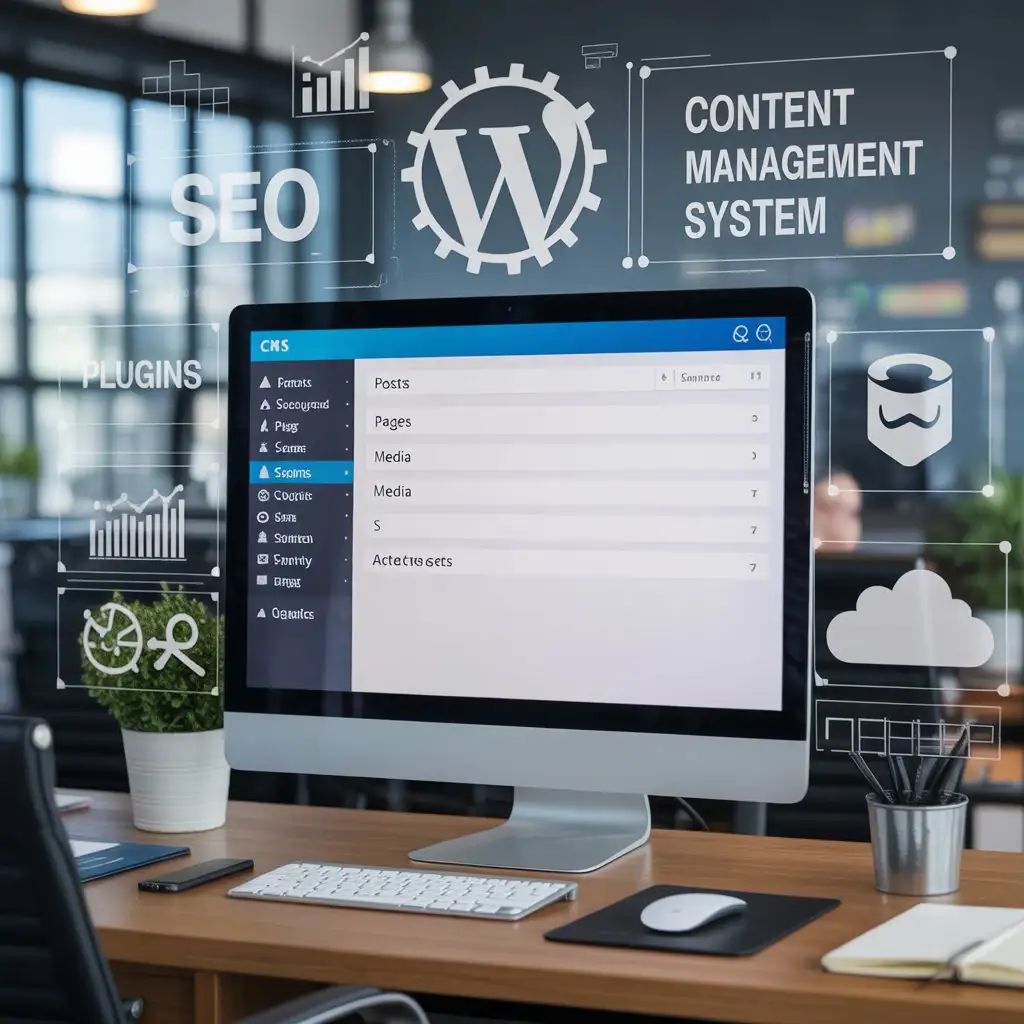Introduction
In today’s fast-paced digital world, having an online presence is no longer optional — it’s essential. Whether you’re a business owner, blogger, or digital marketer, maintaining your website efficiently can make all the difference. That’s where a Content Management System (CMS) steps in.
A CMS simplifies the process of creating, editing, and managing website content without requiring advanced technical skills. From startups to large enterprises, millions of websites rely on CMS platforms to stay active and engaging.
In this article, we’ll explore what a CMS is and highlight the top 10 Content Management System benefits that make it a must-have tool for anyone managing a modern website.
Table of Contents
What is a Content Management System (CMS)?
A Content Management System is software that allows users to build and manage websites easily using an intuitive interface. Instead of writing complex code, you can create and edit content visually — similar to using a word processor.
Popular CMS Platforms Include:
- WordPress – Great for blogs, portfolios, and business sites
- Shopify – Perfect for online stores and eCommerce brands
- Wix – Beginner-friendly with drag-and-drop tools
- Joomla and Drupal – Ideal for developers who want more control
Most CMS platforms feature a dashboard where you can manage content, upload images, adjust design, and track performance — all in one place.
10 Major Benefits of a CMS
1. No Coding Required
One of the greatest Content Management System benefits is that it eliminates the need for coding knowledge. You don’t have to hire a web developer for every small change — anyone on your team can edit pages or update text with ease.
2. User-Friendly Interface
CMS platforms are designed with simplicity in mind. The clean dashboards and intuitive navigation make managing websites straightforward, even for non-technical users. Tasks like adding images, formatting text, or scheduling posts can be done in just a few clicks.
3. Quick Content Updates
Need to update your latest offers, add a blog post, or change pricing? A CMS lets you publish or edit content instantly. This agility ensures your site remains current, relevant, and SEO-friendly.
4. Multi-User Management
A CMS allows multiple people to collaborate on a website. You can assign specific roles — such as editor, author, or admin — ensuring controlled access and smoother workflow for teams managing large sites.
5. Built-in SEO Tools
Many CMS platforms come equipped with SEO features and plugins that help your site rank better on search engines. From adding meta tags and optimizing keywords to generating XML sitemaps, CMS tools make SEO easier for everyone.
6. Themes and Customization
CMS platforms offer thousands of free and premium themes, allowing you to design your site exactly how you want. You can also install plugins or extensions to add features like contact forms, analytics, or social media integration — all without touching code.
7. Scalability for Growth
As your website grows, your CMS grows with you. Whether you’re expanding your blog into an eCommerce site or adding new service pages, CMS platforms handle scalability effortlessly without compromising performance.
8. Cost-Effective Solution
Building a website from scratch can be expensive. CMS platforms reduce costs through open-source options like WordPress or low-cost subscriptions like Wix and Shopify. You save money on development, updates, and maintenance over time.
9. Mobile Responsiveness
In a mobile-first world, your website must look great on every device. Most CMS themes are built to be responsive, automatically adjusting layouts for smartphones and tablets — ensuring your visitors have a seamless experience anywhere.
10. Strong Community & Support
Popular CMS platforms are backed by massive user communities. This means you’ll find endless tutorials, plugins, troubleshooting tips, and expert advice online. Whether you’re stuck on a design tweak or plugin setup, there’s always help available.
Popular CMS Platforms to Consider
WordPress
The world’s most widely used CMS, powering over 40% of all websites. It offers unparalleled flexibility with thousands of plugins and themes, making it suitable for any type of site — from blogs to eCommerce.
Shopify
Built specifically for online stores, Shopify makes eCommerce simple. It handles payments, inventory, and analytics while providing beautiful, customizable storefronts.
Wix
A beginner-friendly platform with drag-and-drop functionality. It’s perfect for small businesses or personal websites that need quick setup without technical challenges.
Joomla
A powerful CMS for developers who want more customization and flexibility. It’s great for complex websites that require multiple content types and user permissions.
Drupal
Known for its high-level security and scalability, Drupal is ideal for enterprise-level websites, universities, and organizations with large content structures.
How to Choose the Right CMS
Selecting the right CMS depends on your website goals, technical expertise, and budget.
- For beginners: Start with WordPress or Wix for ease of use.
- For eCommerce: Choose Shopify for its all-in-one sales tools.
- For developers: Joomla or Drupal offers deep customization.
- For scalability: WordPress and Drupal are strong long-term options.
Before deciding, test the platform’s demo or free version to see if it fits your workflow and business needs.
Conclusion
Understanding Content Management System benefits can transform how you approach website building and management. From saving time and money to improving SEO and collaboration, a CMS empowers anyone to run a professional, scalable, and attractive online presence.
Whether you’re a solo blogger or a growing business, adopting a CMS ensures your website remains modern, efficient, and ready for future growth. Explore your options, pick a platform that suits your goals, and take full control of your digital content today.
for read more blogs click here


